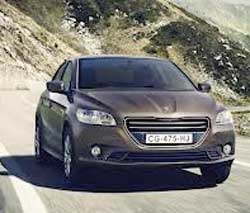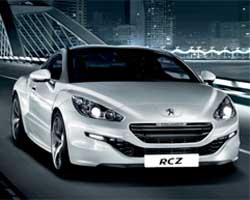
Top stories


Marketing & MediaAI changed how I work as a designer, faster than I expected
Emmanuel Naidoo, Ignition Group 10 hours




More news












ESG & Sustainability
Can Ramaphosa’s crisis committee solve South Africa’s water woes?














But Peugeot Citroën SA's (PCSA) managing director Francis Harmie said in an interview with Business Day that South Africa was an outsider in the fight to become a second source country for the three-year-old 301, currently built in Spain and only in left-hand drive.
Executives at PSA, the Paris-based parent of Peugeot and Citroen, are reported to be dismayed at South African media reports last week that this country was "in pole position" to build a right-hand-drive version.
New PSA chief executive Carlos Tavares, the former Renault chief operating officer, is due to outline his vision for PSA, Europe's second-biggest car manufacturer, which has reported losses of more than €6bn over the last two years.
The future of the 301 may be part of the announcement. Like Renault, PSA sees much of its brands' long-term growth coming from emerging countries.
For now, the 301 is sold mainly in North Africa and eastern Europe. Sub-Saharan Africa is considered a promising market, which would favour manufacture in South Africa but Harmie said that South Africa was only one of several potential sites for a right-hand-drive 301.
"India was initially favoured but now "several Asian countries also want to build it but PSA might allocate the car to more than one country," Harmie said.
PSA would not set up a manufacturing operation in South Africa. Instead, it is reported to have spoken to Nissan SA and General Motors SA about using their spare capacity. In order to access incentives from the 2013-20 automotive production and development programme, local motor companies must build at least 50,000 vehicles annually.
Nissan SA and General Motors SA might both welcome contract assembly to keep them above the threshold. The latter, which signed a global strategic alliance with PSA last year, appears to be the likelier option.
Nissan SA's Japanese parent has a long-standing shareholding and manufacturing global alliance with Renault and there may be doubts whether it would encourage one of its plants to build a direct competitor to the Renault Sandero, which is also designed for emerging markets.
Chinese vehicle manufacturer FAW, which is building an assembly plant in the Coega industrial zone near Port Elizabeth, might also be considered.

But Harmie said PSA had ruled out another possible option: the multibrand assembly plant being planned by East London's industrial development zone that is due to come on stream in 2018. PSA wants its right-hand-drive Peugeot 301 ready by the first quarter of 2016.
Harmie said although the automotive production and development programme made South Africa an attractive option, the country's strike-prone labour force was a deterrent. Following a seven-week strike last year, first at vehicle assembly plants and then at suppliers, BMW and Nissan cancelled plans to build additional vehicles in South Africa.
If the 301 were built in South Africa, it would be mainly for export and Harmie said PSA would think carefully before exposing other markets to supply disruptions caused by South African labour disruptions. Possible volumes for South African assembly could range from 10,000 to 20,000, depending on demand.
Harmie said local assembly could finally help Peugeot (and, by association, Citroën) overcome the negative perceptions that have haunted the brand. The cars were previously built under licence in South Africa before the brand disinvested during the anti-apartheid sanctions era.
PSA was once among the market leaders in South Africa, but has struggled since returning to the market.
The cars were first imported by McCarthy motor retail group in the 1990s before the French company set up its own import subsidiary in 2002.
At first, the brand flourished and annual sales hit 9,000, but the dealer and service network did not keep pace and Peugeot developed a reputation for lousy after-sales service. This perception has continued to haunt the brand.
Harmie said consumer attitudes had improved since the introduction of a five-year maintenance plan on new Peugeots, which shields owners from unexpected costs.
Citroën also struggled to make market headway and in 2010 the brands' separate import and distribution companies were integrated into one. Even so, their combined domestic sales in the first quarter of this year were only 850 - fewer even than Indian brand Mahindra. Their current share of the South African new-car market is 0.8%.
Source: Business Day via I-Net Bridge

For more than two decades, I-Net Bridge has been one of South Africa’s preferred electronic providers of innovative solutions, data of the highest calibre, reliable platforms and excellent supporting systems. Our products include workstations, web applications and data feeds packaged with in-depth news and powerful analytical tools empowering clients to make meaningful decisions.
We pride ourselves on our wide variety of in-house skills, encompassing multiple platforms and applications. These skills enable us to not only function as a first class facility, but also design, implement and support all our client needs at a level that confirms I-Net Bridge a leader in its field.
Go to: http://www.inet.co.za